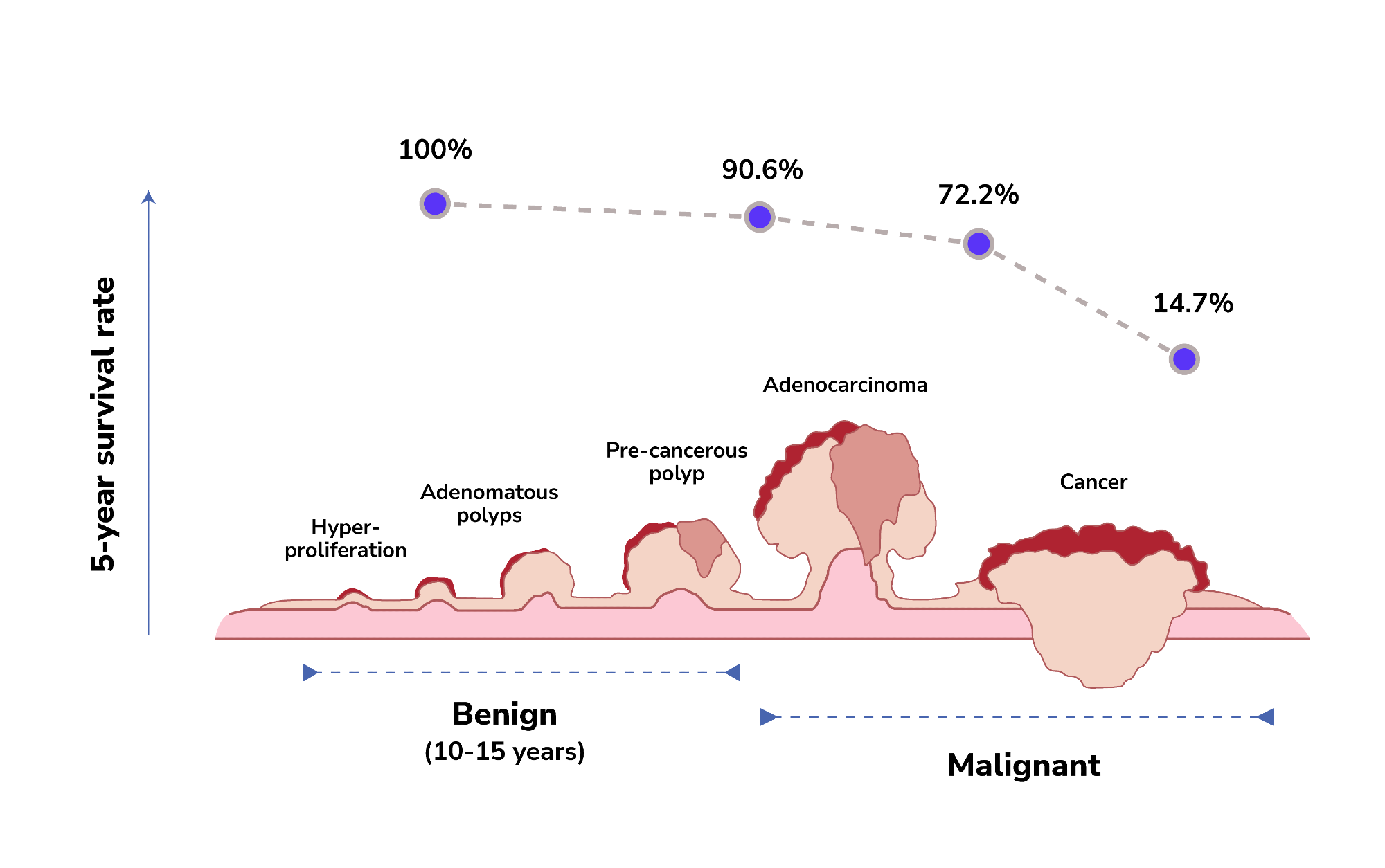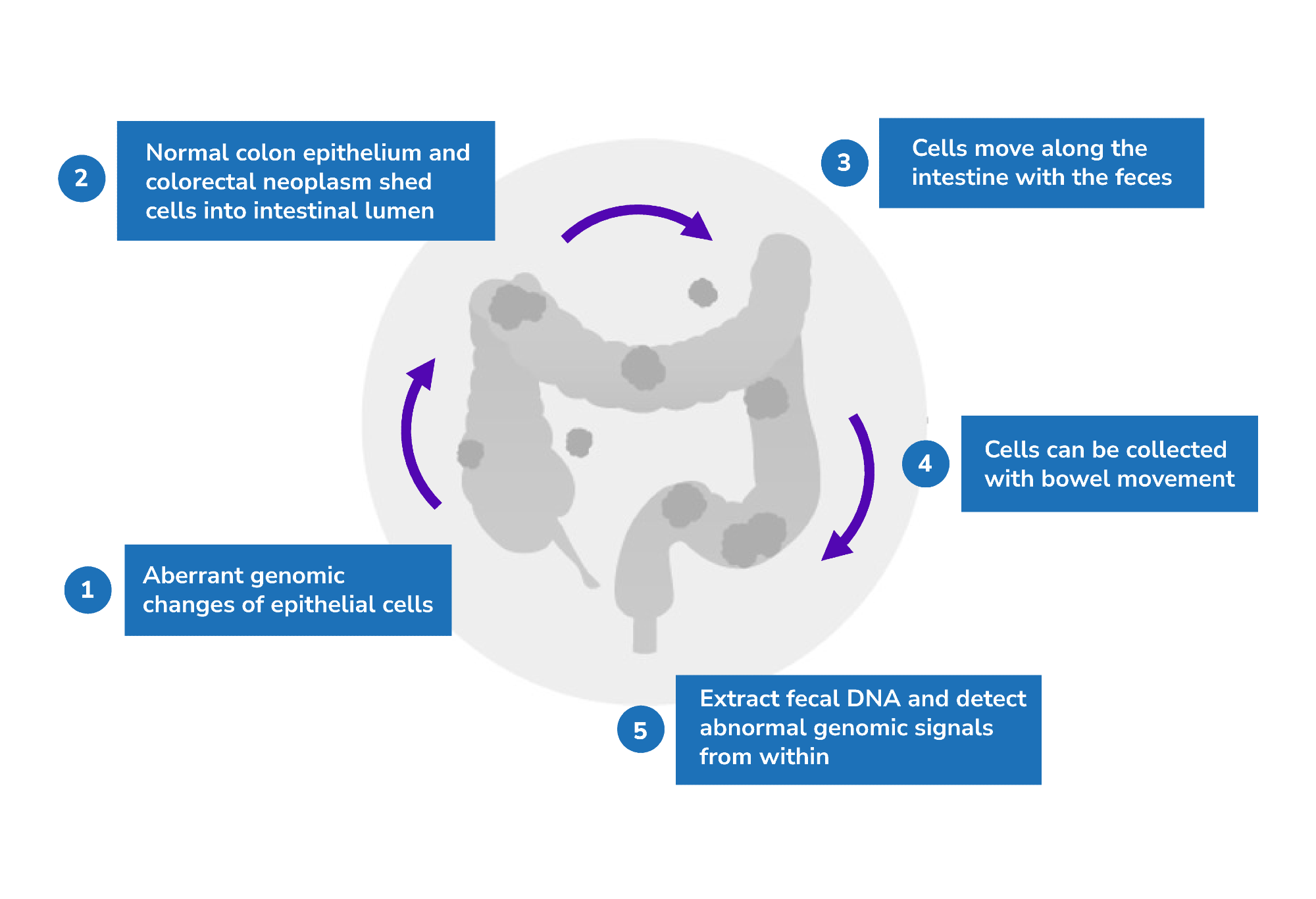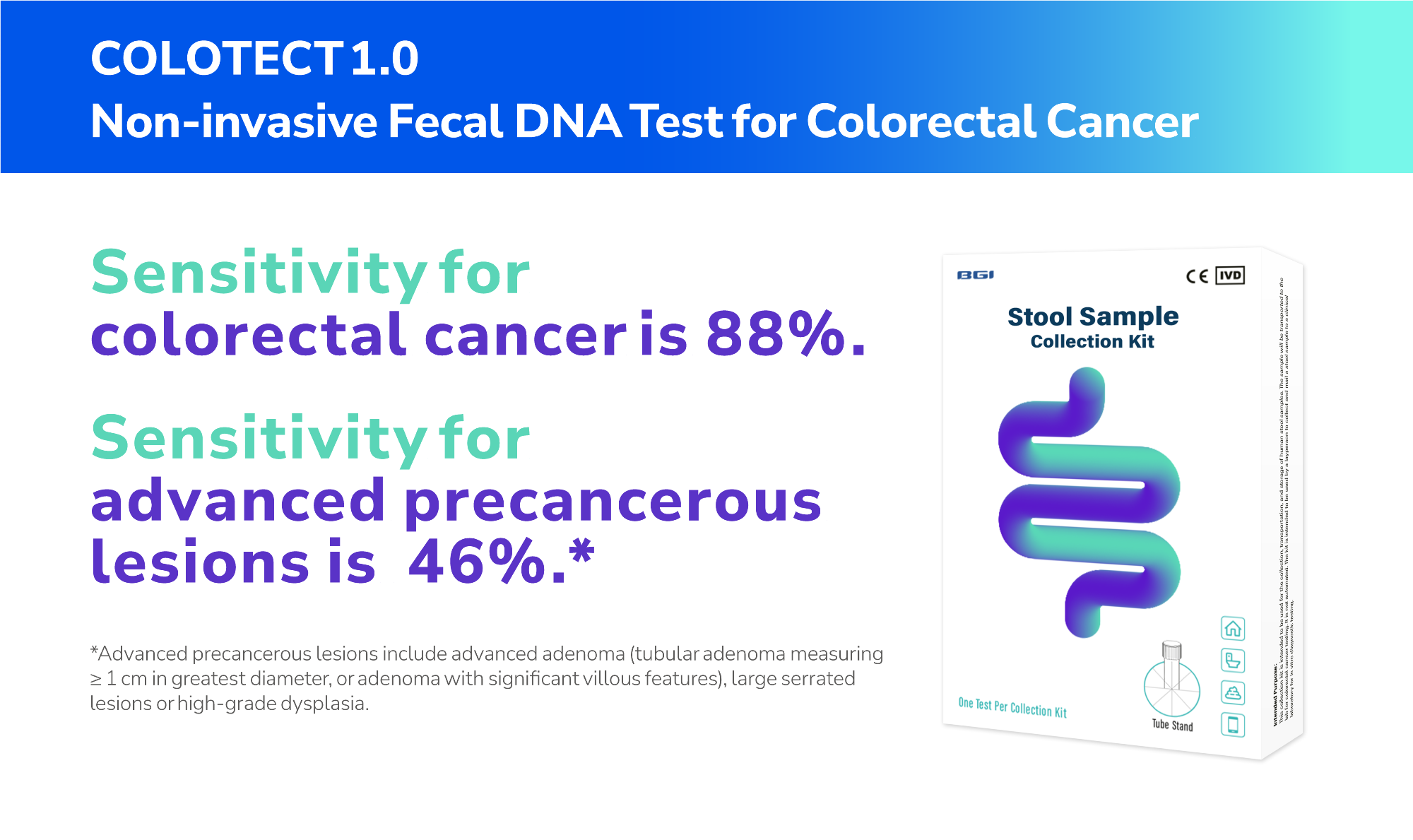On this interview, NewsMedical speaks with Dr. Yuying Wang, Chief Know-how Officer of Oncology from BGI Genomics, about colorectal most cancers and the event and utility of COLOTECTTM 1.0, a non-invasive fecal DNA take a look at for the detection of colorectal most cancers and precancerous lesions.
1. What are the chance elements for colorectal most cancers, and the way have way of life modifications contributed to elevated incidence and mortality charges?
Colorectal most cancers is a serious contributor to cancer-related mortalities globally. In response to GLOBOCAN 2020, it ranks third in incidence (1,931,590 instances) and second in mortality (935,173 instances) following lung most cancers.1 The incidence and mortality charges of colorectal most cancers have been growing for a number of many years.
Most threat elements related to colorectal most cancers are associated to way of life and age, similar to the usage of alcohol and tobacco, lack of bodily train, a low-fiber food regimen, and growing age. Different threat elements embrace a household historical past of colon most cancers and a private historical past of inflammatory intestinal circumstances.
World financial progress has caused profound modifications in existence and elevated lifespans, which have contributed to the surge in colorectal most cancers incidence and mortality charges.
Picture Credit score: BGI Genomics
2. What’s the present development within the age-specific incidence of colorectal most cancers?
Age is a big issue within the growing incidence of colorectal most cancers. Research and publications have demonstrated an escalating development of colorectal most cancers incidence with growing age. The incidence of colorectal most cancers usually rises sharply after 50 years of age,2 and an growing development is noticed in people aged between 40 and 44, exhibiting that early-onset colorectal most cancers incidence has been rising at an alarming tempo.3
Whereas most European tips advocate average-risk inhabitants shall begin colorectal most cancers screening at age 50, there at the moment are medical tips, such because the American Most cancers Society Colorectal Most cancers Screening Guideline (2018), recommending colorectal most cancers screening at 45 years outdated as an alternative of fifty years outdated, due to the regarding improve in colorectal most cancers incidence amongst youthful people.
3. Why is early detection of colorectal most cancers essential for enhancing survival fee?
The development of colorectal most cancers growth tends to be very sluggish. It will probably take as much as 10 to fifteen years to develop from regular epithelium to hyperplasia, to adenomatous polyps, and bear malignant transformation to grow to be colorectal most cancers.
This prolonged window interval provides a good alternative for early detection and intervention, making it attainable to detect the illness earlier than it turns into malignant or progresses to later levels. Early detection of colorectal most cancers, similar to at stage I or II, permits the next probability of curing the illness or discovering higher affected person remedy choices.
A cohort research signifies that adenomatous polyps of the colon and rectum can cut back the incidence of colorectal most cancers instances by 76-90%.4 Statistics from the SEER Program of the Nationwide Most cancers Institute additionally present that the five-year survival fee of early- stage colorectal most cancers (stage I-II) might be as excessive as 90.6%.5 In distinction, the five-year survival fee drops considerably to 14.7% when identified at stage IV.5

Picture Credit score: BGI Genomics
4. What are the attainable limitations of colonoscopy? How can fecal DNA testing be used as a substitute for the early detection of colorectal most cancers?
Though colonoscopy stays the gold normal instrument for colorectal most cancers screening, there are a number of limitations to its use within the common inhabitants.
Colonoscopy might be fairly costly in some areas of the world, and the process is invasive, usually leading to decrease adherence as a result of comparatively prolonged and complex preparation course of. As well as, problems related to anesthesia could happen.
Fecal DNA testing is a non-invasive technique that can be utilized as a substitute choice for detecting colorectal most cancers pre-cancerous lesions.
The precept behind this take a look at is that each regular colon epithelium and colorectal neoplasms shed cells into the intestinal lumen by regular cell turnover and apoptosis. These cells will transfer alongside the gut with feces and might be collected with bowel motion. Fecal DNA can then be extracted to detect irregular genomic alerts.
DNA methylation is a perfect sort of biomarker for most cancers detection. It is a vital type of epigenetic modification that’s intently related to most cancers development and might trigger aberrant gene expression. Irregular DNA methylation is an early occasion that happens throughout carcinogenesis, making it a promising biomarker for the early detection of malignant tumors.

Picture Credit score: BGI Genomics
5. Are you able to clarify the event technique of BGI’s fecal DNA take a look at, COLOTECTTM 1.0?
COLOTECTTM 1.0 is a non-invasive fecal DNA take a look at that makes use of multiplex methylation-specific PCR expertise to hint irregular DNA-methylation biomarkers in colorectal most cancers from fecal samples.
The event of COLOTECTTM 1.0 concerned whole-genome bisulfite sequencing (WGBS) of colorectal most cancers tumor tissues and paired regular tissues to determine and uncover colorectal cancer-associated methylation-specific gene markers.
We reviewed potential markers by querying public genomic databases, similar to The Most cancers Genome Atlas (TCGA) database. After that, particular candidate genes had been recognized, and primer and probe pairs had been designed to formulate quantitative PCR (qPCR) assays.
These markers had been then validated utilizing medical fecal samples collected from sufferers and wholesome management topics. A panel of three biomarkers, SDC2, ADHFE1, and PPP2R5C, had been finally chosen to formulate the COLOTECT™ 1.0 assay.
6. How is the efficiency of COLOTECTTM 1.0 for detecting colorectal most cancers and superior adenoma?
Medical validation of the COLOTECTTM 1.0 assay was carried out to find out its efficiency metrics in detecting colorectal most cancers or pre-cancerous lesions.
Total, its sensitivity for detecting colorectal cancers is 88%, and its specificity for figuring out topics with out superior colorectal neoplasm is 92%.6 Moreover, COLOTECTTM 1.0 has a sensitivity fee of 46% for detecting superior adenoma instances.6
The efficiency of COLOTECTTM 1.0 was additionally in comparison with a fecal immunochemical take a look at (FIT), which detects fecal occult blood as an alternative of DNA methylation. COLOTECTTM 1.0 reveals higher sensitivity for detecting each colorectal most cancers and superior adenoma.
This demonstrates {that a} multi-gene methylation marker panel can outperform FIT, providing higher alternatives to detect early colorectal most cancers and superior adenoma instances.

Picture Credit score: BGI Genomics
7. Are you able to share BGI’s expertise utilizing COLOTECTTM 1.0 to conduct large-scale pilot inhabitants screening program?
BGI has carried out a number of large-scale potential pilot research throughout China to check the effectiveness of utilizing COLOTECTTM 1.0 for common inhabitants screening.
One such pilot research was carried out in Shandong Province in Jap China, which recruited greater than 18,000 common inhabitants members between the years 2020 and 2021. The members, aged between 40 and 74, self-sampled their stool specimens, and the COLOTECTTM 1.0 assay was carried out.
Outcomes confirmed that shut to six% of members examined constructive, and almost 500 of them underwent colonoscopy, leading to an adherence fee of 47%, which is outstanding contemplating the poor adherence fee for colonoscopy within the common inhabitants. Amongst those that underwent colonoscopy, greater than 300 irregular instances had been detected.
dr Yuying Wang
dr Yuying Wang is the Chief Know-how Officer of Oncology at BGI Genomics. dr Wang has a Ph.D. in Cell Biology from the College of Illinois at Urbana-Champaign and did postdoctoral analysis on the College of Colorado Faculty of Medication.
dr Wang is dedicated and devoted to analysis in cell biology and most cancers genomics, and has intensive expertise within the fields of tumor markers, most cancers analysis and screening expertise, high-throughput sequencing, and liquid biopsy.
About BGI Genomics 
BGI Genomics is the world’s main built-in options supplier of precision drugs, now serving prospects in additional than 100 international locations.
They supply educational establishments, pharmaceutical corporations, healthcare suppliers, and different organizations with built-in genomic sequencing, proteomic companies, medical testing, and options throughout a broad vary of purposes.
They’ve greater than 20 years of genomics expertise serving to prospects and companions obtain their objectives by delivering fast, high-quality outcomes utilizing a broad array of cost-effective, cutting-edge applied sciences, together with their very own revolutionary DNBSEQ™ sequencing expertise.
References
- Worldwide Company for Analysis on Most cancers (2020). GLOBOCAN 2020: new world most cancers knowledge, https://www.uicc.org/information/globocan-2020-new-global-cancer-data#:~:textual content=Whatpercent20ispercent20GLOBOCANpercent3F,forpercent20allpercent20cancer %20sitespercent20combined, accessed Jan 2023
- Thrumurthy SG, Thrumurthy SS, Gilbert CE, Ross P, Haji A. Colorectal adenocarcinoma: dangers, prevention, and analysis. BMJ 2016;354:i3590. Revealed 2016 Jul 14. doi:10.1136/bmj.i3590
- Patel SG, Karlitz JJ, Yen T, Lieu CH, Boland CR. The rising tide of early-onset colorectal most cancers: a complete evaluate of epidemiology, medical options, biology, threat elements, prevention, and early detection. Lancet Gastroenterol Hepatol. 2022;7(3):262-274. doi:10.1016/S2468-1253(21)00426-X
- Winawer SJ, Zauber AG, Ho MN, et al. Prevention of colorectal most cancers by colonoscopic polypectomy. The Nationwide Polyp Examine Workgroup. N Engl J Med. 1993;329(27):1977-1981. doi:10.1056/NEJM199312303292701
- Nationwide Most cancers Institute (2000). SEER 18 2011-2017, All races, each sexes, https://seer.most cancers.gov/statfacts/html/colorect.html, accessed Jan 2023
-
Fang Y, Peng J, Li Z, Jiang R, Lin Y, Shi Y, . . . Lu, Z (2022). Identification of multi-omic biomarkers from fecal DNA for improved detection of colorectal most cancers and precancerous lesions. Unpublished manuscript
Disclaimer
- The content material is offered for academic and informational functions solely and doesn’t represent offering medical recommendation or skilled companies. It shouldn’t be used for diagnosing or treating a well being drawback or illness; these looking for private medical recommendation ought to seek the advice of a licensed doctor.
- The product described or proven is just obtainable in sure international locations.

